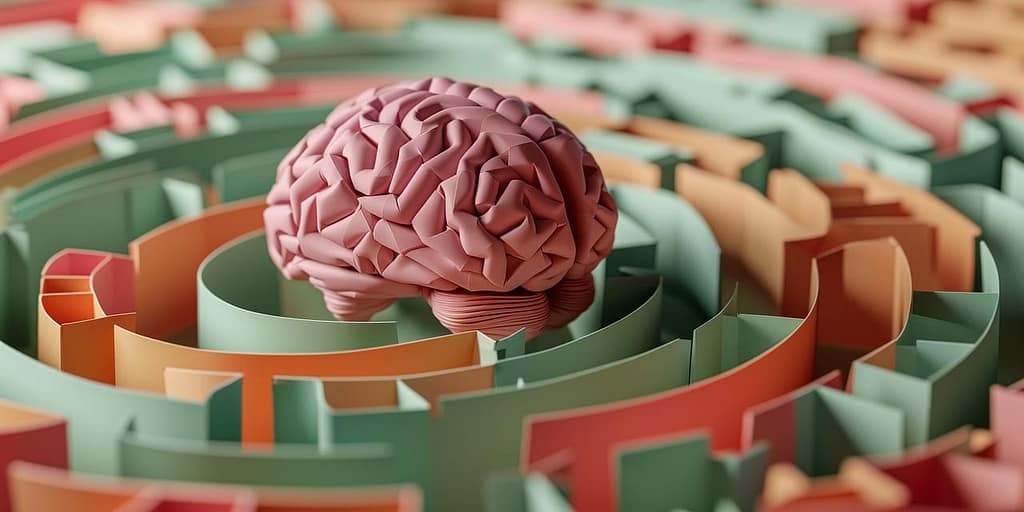Millions of people throughout the world suffer from dementia, a complicated and incapacitating illness. One of the most common questions people ask about dementia is: Is dementia a mental disorder? In this article, we’ll explore the answer to this question and provide insights into the nature of dementia, its causes, symptoms, diagnosis, and treatment options.
Understanding Dementia
Dementia is a broad term that describes a decline in cognitive function, including memory loss, language difficulties, and problem-solving impairments. Between 60 to 80 percent of dementia cases have Alzheimer’s disease, making it the most prevalent form of dementia. Lewy body dementia, frontotemporal dementia, and vascular dementia are other forms of dementia.
Is Dementia a Mental Disorder?
So, is dementia a mental disorder? The answer is complex. Dementia is a neurological disorder that affects the brain’s cognitive function, but it can also have psychiatric symptoms. The Diagnostic and Statistical Manual of Mental Disorders, 5th Edition (DSM-5) classifies dementia as a neurocognitive disorder, rather than a mental disorder. However, dementia can have a significant impact on a person’s mental health, leading to symptoms such as anxiety, depression, agitation, and psychosis. Studies have shown that up to 60% of people with dementia experience psychiatric symptoms.
Causes of Dementia
Dementia is a multifactorial condition, and its causes are complex and not yet fully understood. However, research has identified several risk factors that contribute to the development of dementia, including:
Age:
- Age is the biggest risk factor for dementia. After age 65, the chance of getting dementia doubles every five years.
- Family history: Having a family history of dementia increases a person’s risk of developing the condition.
- Genetics: Certain genetic mutations, such as the APOE-e4 gene, increase the risk of developing Alzheimer’s disease.
- Lifestyle factors: Lifestyle factors, such as a poor diet, lack of exercise, and social isolation, can increase the risk of developing dementia.

Symptoms of Dementia
The symptoms of dementia can vary depending on the type of dementia and the individual affected. Common symptoms include:
- Memory loss: Forgetting recent events, learning new information, and recalling familiar words and names.
- Language difficulties: Difficulty finding the right words, following conversations, and understanding written or spoken language.
- Problem-solving impairments: Difficulty with abstract thinking, making decisions, and judging time and space.
- Mood changes: Becoming easily agitated, anxious, or depressed.
Diagnosis of Dementia
Dementia can be difficult to diagnose since its symptoms might mimic those of other illnesses.
A comprehensive diagnosis includes:
- Medical history: A thorough medical history to rule out other conditions that may be causing the symptoms.
- Physical examination: A physical examination to assess the person’s overall health and look for any signs of underlying medical conditions.
- Laboratory tests: Laboratory tests, such as blood tests and imaging studies, to rule out other conditions that may be causing the symptoms.
- Cognitive and neuropsychological tests: Cognitive and neuropsychological tests assess the person’s cognitive function and identify any areas of impairment.
Treatment of Dementia (Is Dementia a Mental Disorder)
Treatment of dementia depends on how you answer or view the question: Is dementia a mental disorder? While there is currently no cure for dementia, there are several treatment options available to manage the symptoms and slow down the progression of the disease. These include:
- Medications: Medications, such as cholinesterase inhibitors and memantine, can help manage the symptoms of dementia.
- Non-pharmacological interventions: Non-pharmacological interventions, such as cognitive training, behavioral therapy, and caregiver support, can help manage the symptoms of dementia and improve the person’s quality of life.
Living with Dementia
Living with dementia can be challenging, but several strategies can help. These include:
- Creating a supportive environment: Creating a supportive environment that is safe, comfortable, and familiar.
- Establishing a routine: Establishing a routine that includes regular times for meals, sleep, and activities.
- Encouraging social interaction: Encouraging social interaction and engagement with others.
- Providing emotional support: Providing emotional support and validation to help manage stress and anxiety.
Caregiver Support
Caregivers play a vital role in supporting individuals with dementia. However, care-giving can be physically and emotionally demanding. It’s essential to provide caregivers with support, resources, and training to help them manage the challenges of care-giving especially if they want to answer the question: is dementia a mental disorder?
Conclusion
In conclusion, dementia is a complex and multifactorial condition that affects millions of people worldwide. While it is not strictly a mental disorder, dementia can have a significant impact on a person’s mental health, leading to symptoms such as anxiety, depression, agitation, and psychosis. By understanding the causes, symptoms, diagnosis, and treatment options for dementia, we can better support individuals with dementia and their caregivers, and improve their quality of life. With the above explanations, what will be your answer: Is dementia a mental disorder?

